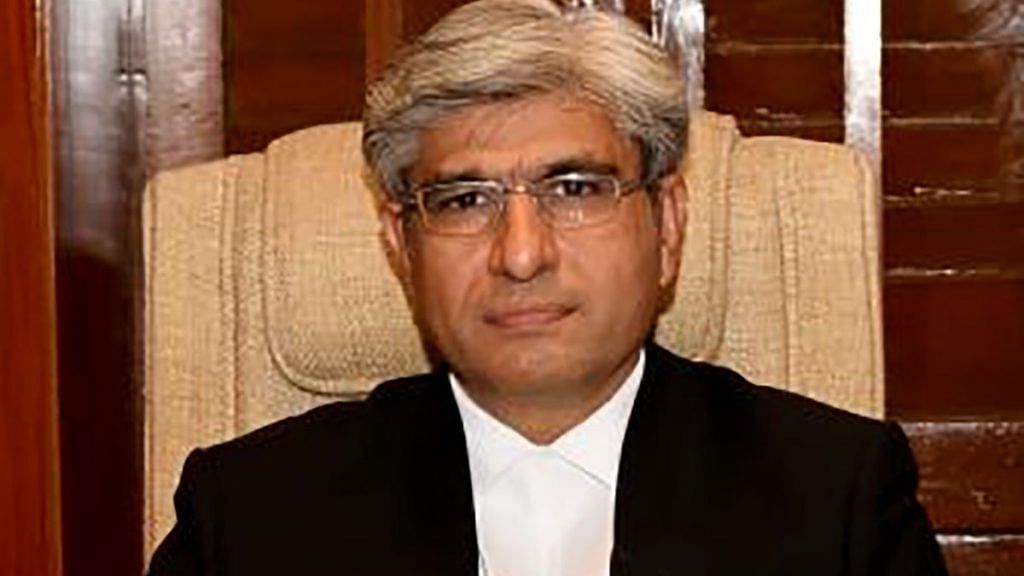New Delhi: Bombay High Court Justice Sarang V. Kotwal’s comments on Leo Tolstoy’s War and Peace Wednesday caused an outrage, with many left wondering why he would question someone for possessing this classic piece of literature.
In his two years as a judge, Kotwal has handled several cases ranging from matrimonial cruelty to the release of a controversial movie — many of which made the headlines.
Justice Kotwal enrolled as an advocate in August 1992. He practised at the Dhule district and sessions court and the Bombay High Court, before being elevated as an additional judge of the high court in June 2017. He was made permanent in April 2019.
‘Objectionable material’
War and Peace was mentioned during the hearing on a bail plea filed by activist Vernon Gonsalves, who has been arrested in connection with the Elgar Parishad-Bhima Koregaon case.
Opposing the bail petition, the Pune police categorised as “incriminating evidence” the books and CDs seized from his house. Some of the titles reportedly on the list were Rajya Daman Virodhi, released by the Kabir Kala Manch, Anand Patwardhan’s film Jai Bhim Comrade, copies of a circular issued by the National Study Circle, and War and Peace.
Taking note of the submissions, Justice Kotwal remarked: “The title of the CD, Rajya Daman Virodhi, itself suggests it has something against the state, while War and Peace is about a war in another country. Why did you keep objectionable material such as books like War and Peace… at home? You will have to explain this to the court.”
The judge is understood to have asked the police to place on record the content and details of the titles alleged to be incriminating as well.
A day later, though, Kotwal appeared to withdraw his remark, clarifying that his comment was not meant for Tolstoy’s book specifically.
“I was reading the list of all books and CDs seized and even then didn’t mean that all material was incriminating,” PTI quoted Kotwal as saying Thursday.
Earlier this month, Kotwal permitted Sudha Bharadwaj, also arrested in the Elgar Parishad-Bhima Koregaon case, to visit her family in Bengaluru to attend her father’s funeral rituals. He had directed the Maharashtra government to provide enough police personnel in plain clothes to accompany her.
Also read: Hindu Rashtra to peacocks not having sex: There is no way to assess conduct of our judges
Reduced sentence of acid attack convict after he married victim
In June last year, Kotwal was a part of a division bench which had reduced the sentence awarded to an acid attack convict, after he informed the court that he had married the victim, who was his ex-girlfriend.
The bench had noted that the matter had been “amicably settled” between the two , and that the convict had now decided to donate his skin for her surgery.
Opining that the couple should be “permitted to lead a peaceful life”, the court reduced the sentence from life imprisonment to eight years, which the man had already served.
Trailer of Ram Janmabhoomi
In December last year, a division bench of Justice B.P. Dharmadhikari and Justice Kotwal had also directed YouTube to remove “objectionable content” from the trailer of the film Ram Janmabhoomi.
It had, however, added that if the Central Board of Film Certification (CBFC) passes the film, it can be released. The movie was granted an A certificate in March 2019.
Matrimonial cruelty
In January last year, Kotwal was a part of a bench which granted divorce to a man who suffered mental agony because of the “unreasonable criminal proceedings” initiated against him, as well as the fact that his wife kept blaming him for her not being able to conceive.
Then, in March the same year, he was a part of another bench which ruled that not taking care of a husband’s needs or failing to even offer him water when he returns home late from work does not amount to cruelty.
In August 2018, the judge acquitted a man and his parents who were accused of driving the man’s wife to suicide. In doing so, he held that asking one’s wife to cook properly or to do household work would not by itself amount to ill-treating her.
Also read: Battle of Saragarhi has become a symbol of valour, but Battle of Koregaon has no takers
